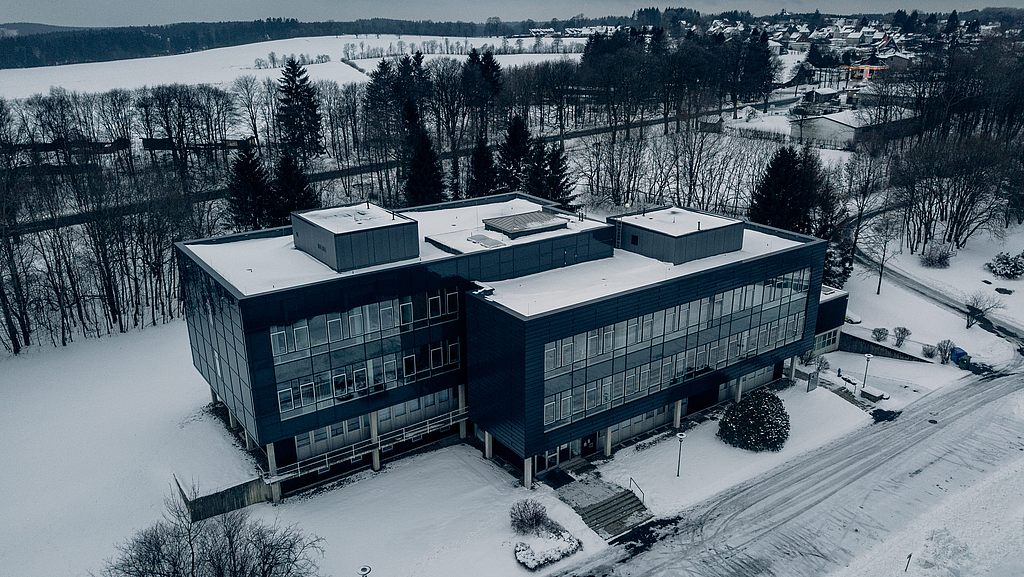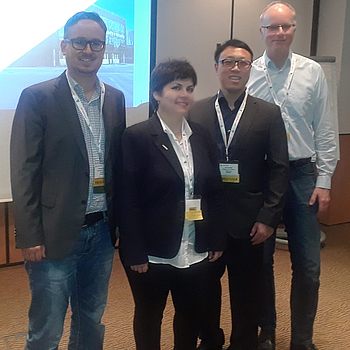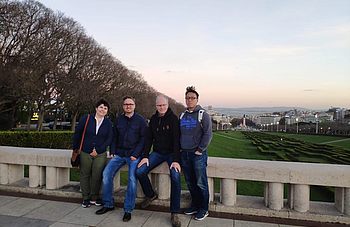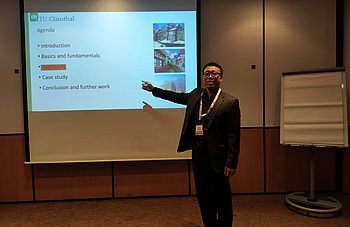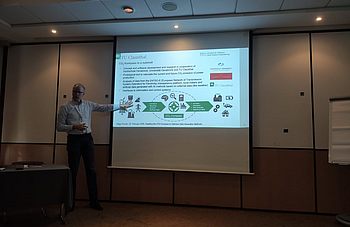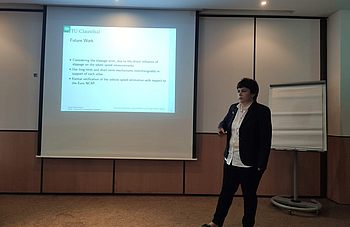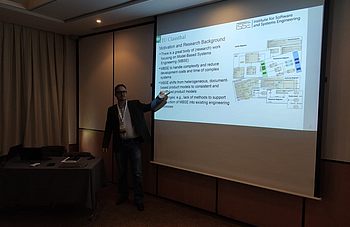The motivation for the AIMBSE track was two-fold. On one side there is a large body of (research) work focusing on Model-based Systems Engineering (MBSE). They point out MBSE as a possible way to handle the complexity and reduce the development costs and time of complex systems. In the last years, MBSE has shifted to a large extent from document-based product models to consistent and interlinked product models, which are more amenable to formal analyses. However, industry companies across branches are confronted with the introduction and adaptation of MBSE methods. The AIMBSE track was focused on approaches to improve the acceptance and integration of MBSE methodologies in existing engineering processes, new modelling concepts in MBSE, knowledge-based and data-driven methods and many other topics.
There were three papers presented in the AIMBSE track.
The paper presented by our colleague, Adina Aniculaesei – Data-driven Approach for Accurate Estimation and Validation of the Ego-Vehicle Speed – has been motivated by the work done in the project Accurate Speed Estimation in collaboration with our project partner VW EE in Wolfsburg. The paper introduced an approach for accurate estimation of the ego-vehicle speed using long-term estimation methods based on parameters of the ego-vehicle configuration and short-term estimation methods on the basis of GPS sensors measurements. The approach has been evaluated on real-world data collected in two driving scenarios (smooth & sporty driving style) using the field test platform of the project partner. The results of this research work show that the estimated ego-vehicle speed complies with the requirements of the European New Car Assessment Programme (Euro NCAP).
Helge Fischer has presented the paper Adapting the CO2-Compass Architecture to Further Optimize Data Generation Methods - Enhancing CO2 Emission Forecasts by Minimizing the Area of Observation. This paper was motivated by a cooperation project (> CO2 Compass) of the University of Applied Sciences Osnabrück, University of Osnabrück and Clausthal University of Technology. The paper introduces the tool CO2 Compass for transparent display of CO2 emissions of the available electricity. The focus of the approach behind the tool is on actual CO2 emissions and not just certificates for green power. Such a tool can help trigger Make-Or-Buy decisions with CO2 emissions in power generation.
Daning Wang has presented the paper An Approach for Configuration of the Industry 4.0 Technologies on Production Systems. The paper is motivated by the work Daning Wand has done in his doctoral thesis and introduces an approach for the managed evolution of a complex production system, which is understood as a cyber-physical system.
